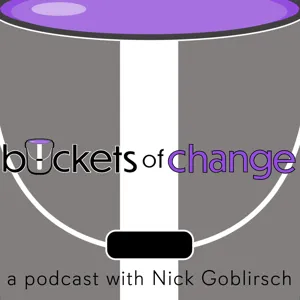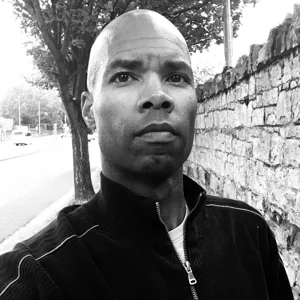Podcast Summary
How Technology is Ruining Our Ability to Find Authentic Experiences: Embracing physical activity, creativity, and unpredictability can help restore balance in our relationship with technology and find genuine fulfillment.
The constant consumption and interruption that digital technology brings can lead to a sense of dissatisfaction and disconnection from authentic experiences. Nate Anderson, a deputy editor at Ars Technica, shares his journey of becoming disenchanted with technology despite his career in the field. He reminisces about the joy of tinkering and coding as a kid, but laments that technology has shifted towards mindless consumption and constant interruptions. This shift has made life easier and more frictionless, but it has also taken away the opportunity for creativity and meaningful engagement. Anderson suggests that embracing the philosophy of Friedrich Nietzsche can help individuals find balance in their relationship with technology by focusing on physical activity, creative self-overcoming, and embracing a bit more danger and unpredictability.
How Digital Technology is Stealing Our Lives and How to Fight Back: Embracing the teachings of Nietzsche can help us find purpose in a tech-driven world and ensure we actively participate in life instead of getting lost in screens.
Digital technology has made life more frictionless and addictive, leading to potential feelings of lifelessness and disconnection. The ease of access and constant stimulation provided by technology has directed our attention towards screens and away from real-life experiences. However, turning to the philosophy of Friedrich Nietzsche offers a unique perspective on navigating this tech-saturated world. Nietzsche emphasized the importance of finding meaning in life through struggle and creativity, and not simply seeking ease and detachment. While not endorsing all of Nietzsche's controversial viewpoints, his work serves as a valuable tool for reflection and deep thinking amidst the fast-paced tech industry. Ultimately, it is important to approach technology with intention and actively engage in the world rather than passively consuming through screens.
Is technology trapping us in a life devoid of passion?: Embracing struggle, passion, and ambition is crucial for a meaningful life, contrary to the comfort-oriented lifestyle promoted by technology.
Nietzsches idea of a flourishing life is centered around struggle, creative exertion, and pushing the boundaries of human limitations forward. He believes that the good life is not about seeking comfort, ease, and safety but about living dangerously and striving for more. Our digital technology, on the other hand, promotes a frictionless and easy consumption, creating a society of people who resemble the last man as described by Nietzsche - couch potatoes who simply exist without thinking. The contrast between Nietzsche's vision of the good life and the comfort-oriented lifestyle offered by technology highlights the importance of embracing struggle, passion, and ambition in order to truly live a meaningful and fulfilling life.
This man's realization about digital technology will leave you stunned!: Embracing self-overcoming and creative goals can lead to personal growth and a more fulfilling life in the digital age.
Digital technology has the potential to limit our range of activities and hinder personal growth. Nate Anderson realized that he was spending a significant amount of time sitting on the couch or looking at a screen, which he found to be a hollow existence. Nietzsche's philosophy emphasized the importance of finding meaning in life, especially in a world where traditional sources of meaning, like religion, may no longer apply. Nietzsche believed in creating self-generated goals that require struggle and self-overcoming. Achieving happiness and fulfillment does not come from simply being comfortable and safe, but from striving for something meaningful and impactful. Like great artists who continually evolve and explore new territories, embracing self-overcoming and creative goals can lead to personal growth and a more fulfilling life.
Discover Nietzsche's Surprising Secret to Finding Personal Fulfillment: Nietzsche urges us to seek personal growth and creativity while consciously managing technology to enhance our lives and say yes to life.
Nietzsche calls on individuals to seek their own personal truths and constantly push beyond their current limits in order to find fulfillment. This does not necessarily mean changing the world on a grand scale, but rather striving for personal growth and creativity in one's own domain. While technology can serve as a powerful tool for these creative goals, it can also easily distract and monopolize our attention if we are not mindful. It is crucial to consciously take charge of technology and use it to enhance our lives, rather than allowing it to control us. In order to manage information overload and listen to our inner voice, Nietzsche suggests a form of asceticism that restricts unnecessary intake and focuses on saying yes to life.
How to Live a More Fulfilling Life in a Digital Age: Managing our information intake and adopting a slow information diet allows us to focus on meaningful content, leading to a more fulfilling life and improved mental clarity.
Managing our information intake is crucial in order to live a more fulfilling life. While digital technology provides us with an abundance of information, it often leads to information overload and prevents us from truly digesting and understanding the material. By learning to say no to excessive information and adopting a slow information diet, we can slow down our acquisition of knowledge, ruminate on what we consume, take breaks from information intake, and even forget certain information that doesn't serve us. Being intentional about our information consumption allows us to focus on meaningful content that stands the test of time, rather than being constantly bombarded with fleeting novelties. Taking control over our information intake is essential for our overall well-being and mental clarity.
Discover the transformative power of slow reading and personal libraries!: Prioritizing intentional reading and curating a personal library can provide deep insights and shape our thinking, while engaging with the world through physical experiences enriches our understanding of ourselves and the world. Be mindful of digital technology's impact on our well-being and seek balance.
We should prioritize intentionality and slow, deep reading in order to truly engage with and internalize meaningful content. In a time where we constantly seek novelty and quick consumption, taking the time to read long-form articles and books can provide profound insights and shape our thinking. The idea of curating a personal library of a few impactful books and revisiting them throughout our lives can have a transformative effect. Additionally, Nietzsche's emphasis on the role of the body in a flourishing life reminds us that our physicality is not separate from our intellectual and emotional selves. Engaging with the world through movement and physical experiences can stimulate thought and enrich our understanding of ourselves and the world. Finally, the increasing reliance on digital technology disconnects us from our bodies and the world around us. It is important to be mindful of our posture and find ways to engage with our physical surroundings to maintain a balanced and holistic well-being.
Is technology limiting our lives? Discover the untapped potential!: Our reliance on technology can lead to a controlled experience of life, but balancing our digital and physical lives is crucial for personal growth and development.
Our increasing reliance on technology, particularly screens, can lead to a controlled and limited experience of life. While we have the ability to control and manipulate our online interactions, the real world is not as pliable. This can be frustrating, but it also opens us up to unexpected and serendipitous experiences. It is important to remember that our bodies and minds are interconnected, and technology should not prioritize one over the other. We should strive to use technology in ways that encourage the use of both, rather than isolating ourselves in a digital world. Engaging in physical activities, such as playing a musical instrument, allows for a different kind of learning and understanding that cannot be achieved solely through screens. Ultimately, balancing our digital and physical lives is crucial for our personal growth and development.
Are You Addicted to Control? Here's Nietzsche's Surprising Solution: By embracing physical, immersive experiences and seeking joy in the present moment, we can break free from the excessive control and detachment that technology often reinforces.
Our technologically driven lives have become too focused on control, order, and rationality, leading to a lack of balance and connection to the present moment. Nietzsche's concept of the Dionysian urges us to embrace the physical, immersive experiences that allow us to break free from constant thoughts of the past and future. While technology offers convenience and control, it often reinforces our desire for complete control and detachment. Therefore, seeking out activities like walking, playing musical instruments, board gaming, attending religious services or concerts, and practicing yoga can help us reconnect with the present and experience tangible moments of joy. We need to recognize the limitations of relying solely on technology for fulfillment and actively seek out less controlled, more immersive experiences.
How technology can rob us of meaning and fulfillment: Embracing life's challenges and unpredictability is more rewarding than seeking total control with technology. Use technology as a means to connect, overcome obstacles, and expand our understanding of humanity.
Technology offers us control and convenience, but it can also hinder our ability to find meaning and growth in life. While having complete control over every aspect of our lives may seem appealing, it can lead to a predictable and safe existence that lacks excitement and fulfillment. Embracing the unpredictability and challenges of life can ultimately be more rewarding than seeking total control. Technology should be viewed as a tool that can either distract and isolate us or enable us to engage with the world and pursue personal growth. To make technology a positive force in our lives, we need to approach it with intention and use it as a means to connect with others, overcome obstacles, and expand our understanding of what it means to be human.
Discover the real secret behind meaningful technology usage!: Approach technology with intention, reflecting on personal goals and using it as a tool for growth and fulfillment.
We need to approach technology with a mindful and purposeful mindset. Simply following tips like putting our phones away or limiting screen time is not enough. Instead, we should consider what we truly need from life and how technology can help us achieve those goals. It's important to have time for reflection and to ensure that our actions feel meaningful. Technology can be beneficial when it encourages creativity, learning, and real-world interactions. Rather than letting ourselves be consumed by technology and its constant distractions, we should take control of how we use it. By doing so, we can harness its power as a tool for personal growth and fulfillment.













